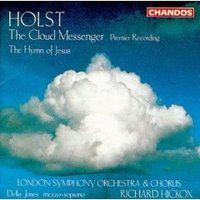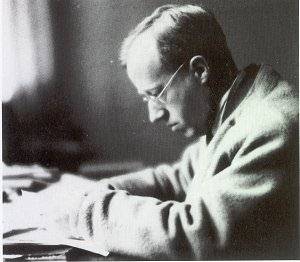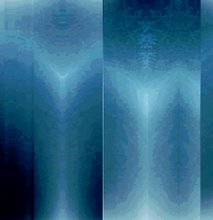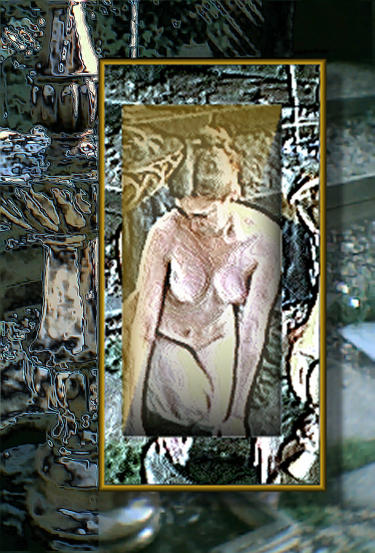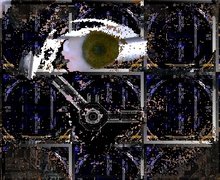Music: Holst The Cloud Messenger
The Cloud Messenger
The Cloud Messenger Op. 30 is an engaging work for choir and orchestra. It is perhaps the biggest of the "Indian" works Gustav Holst composed between 1895 and 1914.
The work is based on the epic poem by Kalidasa called the Meghaduta. Holst was a Sanskrit adept and scholar of Indian occult (as was Scriabin). His translation of the Meghaduta took him seven years. The Cloud Messenger is about an exiled poet who sends a cloud to the Himalayas with messages of love to his wife.
It was first performed on March 4th, 1913, with the London Choral Society and the New Symphony Orchestra under the direction of the composer. It failed to make an impression, though, and has largely been absent from concerts since its première. Although the public wasn’t thrilled with this lovely work, other composers such as Vaughan Williams thought highly of it. Its general unacceptance was a blow to Holst, who considered it the best piece he had written at the time. Its failure sent him into a yawning depression from which he emerged to compose The Planets.
The Cloud Messenger is reminiscent of Wagner in some respects. True, Parcifal held a fascination for Holst, but the bleak opening of The Cloud Messenger is more suggestive of the Prelude to Act Three of Wagner’s Tristan und Isolde, particularly in the use of double reed instruments and the somber chords moving slowly through the thin orchestral fabric. The harmonies, though obviously chromatic (as Wagner’s harmonies famously were), move in less linear fashion and, though inventive, the music is not so Teutonic as Wagner’s but is firmly rooted in the choral tradition of England.
“I found myself in thought transposed quite easily and without volition to a region of great remoteness,” was composer Arthur Bliss’s reaction when first hearing it. The only recording available is with the London Symphony Orchestra under the direction of Richard Hickox [Chandos CHAN 8901 ASIN: B000000ALV reissued in 1999 as a two disk set ASIN: B00000IYN5 and packaged with a bunch of other works by Holst].
It is difficult to evaluate this performance as there are no other recordings to compare it to and the score is not readily available but one would guess that the dynamics are not wide enough. The big outburst of the choir at the invocation to the cloud probably should have been louder while the Contralto solo delicately accompanied by wood winds and a solo viola is likely supposed to be much softer. Obviously, I'm just giving my impressions or, rather, talking off the top of my head.
A solid performance of Holst’s The Hymn of Jesus rounds out the 1992 version of the CD. This is a polite, solid presentation but, again, it could have done with a broader dynamic range.
Dr. Scott Giles
Holst, Imogen: A Thematic Catalouge of Gustav Holst's Music. London:
G. and I. Holst Ltd., 1974
Palmer, Christopher: Liner notes. Cloud Messenger / Hymn of Jesus.
Music of Gustav Holst. Chandos, 1990
